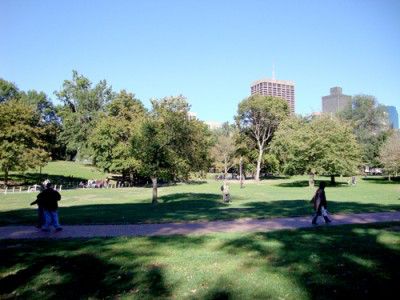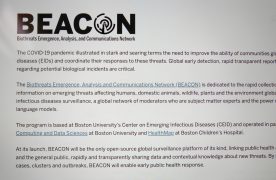
Farmers in the Boston area have an abundance of produce but no place to sell it year-round, said Mimi Hall, the operations manager at the Boston Public Market Association.
While there are many seasonal farmers markets in Boston, she said, no farmers markets operate during every season. In a move they say will revitalize Bostonian’s relationships with food, the BPMA recently submitted an official proposal to the city to install a permanent marketplace across from the Rose Fitzgerald Kennedy Greenway.
The BPMA plans to use the vacant ground floor of a Massachusetts Department of Transportation-owned building at 136 Blackstone St. to house a large-scale, permanent farmer’s market, Hall said.
In a letter to Massachusetts Department of Agricultural Resources, the president of the BPMA said the market will provide the public with “a central urban showcase featuring the best food from Massachusetts.”
The market will host 90 seasonal and permanent vendors who will sell fresh products such as fruit, vegetables, herbs, eggs, wine and baked goods, according to the BPMA proposal.
“The Boston Public Market will reconnect our urban and rural communities and is projected to bring in [more than] $30 million in new sales of food products per year – some $300 million over 10 years,” Hall said.
Opening the market, which will spread across a 27,000-square-foot space, will take about $15 million, according to the BPMA proposal.
Of that cost, $11 million will come from private funders and the rest will come from the government, as authorized by Massachusetts General Court, according to the project’s Request for Proposals.
“The Commonwealth is prepared to invest up to $4 million from state and federal capital funds to support the opening of the Public Market,” according to the RFP.
The BPMA anticipates the market will open on July 1. It will be open from 7 a.m. to 7 p.m. on weekdays and 9 a.m. to 5 p.m. on weekends, according to the BPM website.
Although the official proposal is new, the idea for the location is not.
“A 2009 study conducted by the BRA found the area to be an ideal location and proposed the development of a ‘market district,’” according to the website.
While the BPMA emphasizes the importance of the market’s location, Hall said, the organization hopes the actual wares for sale will present the most compelling attraction for locals and tourists.
“We also see the market as an educational center – teaching consumers of all income levels, visitors and children about the health benefits and pleasures of eating fresh, local and sustainable grown seasonal food,” she said.
Although the Haymarket farmer’s market is known for competitive prices, the BMPA will attempt to keep its proposed market’s prices low as well and will accept food stamps, according to the BMP.
Another difference between Haymarket and the Boston Public Market, Hall said, will be the new market’s focus on featuring “only regionally-produced foods.”
The BPMA, she said, has been committed to providing locally grown food to the Boston area since its inception in 2001. Since then, the organization has run “two successful seasonal farmers markets.”
Hall noted the Boston Public Market will be different than the open-air market at Haymarket in other ways, too.
“The vendors of the Haymarket Pushcart Association, who operate outdoors on Fridays and Saturdays, specialize in reselling low-cost, discount food purchased wholesale from suppliers to area grocery chains,” Hill said. “This food is sourced from all over the country and sometimes abroad.”
This is an account occasionally used by the Daily Free Press editors to post archived posts from previous iterations of the site or otherwise for special circumstance publications. See authorship info on the byline at the top of the page.













Great website. Plenty of useful info here. I’m sending it to a few friends ans also sharing in delicious. And obviously, thanks for your effort!